Preventing Bloating in Dogs

Bloating is never fun. It can be uncomfortable for us as humans, but did you know that for dogs, it can be extremely dangerous? It can lead to something called "gastric dilation volvulus" (GDV). This is a serious condition where a dog's stomach will expand from excessive gas and twist, blocking the release of gas and air. Without immediate medical attention and emergency surgery, this situation can easily become fatal. Bloat cannot and should not be treated at home. The best thing you can do is prevent it before it starts.
What Causes Bloating?
There is no singular cause for bloating in dogs. It can happen due to a variety of reasons, such as swallowing excessive amounts of air, strenuous activity, or exercising right after mealtime. Deep-chested breeds such as Great Danes are also more likely at risk of bloat than other types of dogs. Fetch by WebMD also states that any dog weighing over 90 pounds is 20% more at risk for bloat than smaller dogs.
Stress may be another factor that leads to bloating. In both humans and dogs, stressors can cause digestive problems. Long car rides, strangers, or other pets in the home, for example, may cause your dog to become anxious and at risk for bloat.
Symptoms of Bloat
If you notice any of these symptoms, take your dog to the emergency vet immediately.
- Distended (swollen) stomach
- Abdominal pain
- Labored breathing
- Shock
How to Prevent Bloating in Dogs
Feed Your Dog Smaller Portions Throughout the Day:
Dogs that are fed at sporadic intervals tend to eat faster and more frantically than those that are fed on a consistent schedule. Eating too quickly can have severe consequences, and bloating is one of them. According to the American Kennel Club, dogs that are fed only one meal per day are twice as likely to experience bloat than those who are fed twice or more a day.
Avoid Exercising Your Dog Before or Immediately After Meals:
As humans, we know that exercising too close to mealtimes can cause an upset stomach or other digestive issues. The same is true for dogs. Do your best to not schedule walks or exercise too close to meals. Give your dog a bit of time to digest their food before encouraging them to take laps around the yard.
Encourage Your Dog to Eat More Slowly:
In addition to feeding your dog smaller portions throughout the day, you can encourage them to eat more slowly so they don't swallow too much air. Consider getting your dog a puzzle-treat toy. This is a great way to keep them mentally stimulated while also helping them slow down their eating. Feeder Bowls are another good option when feeding them their regular meals. Slow Feeders are dog feeding bowls that are designed to make dogs "work" for their food. This causes the dog to slow down in between bites as they work for their next bite. Petmate's Slow Feed Bowl has a bone that sticks out in the middle of the bowl, causing the food to disperse around the bone. As your dog eats, she has to work around the bone, causing her to take smaller bites.
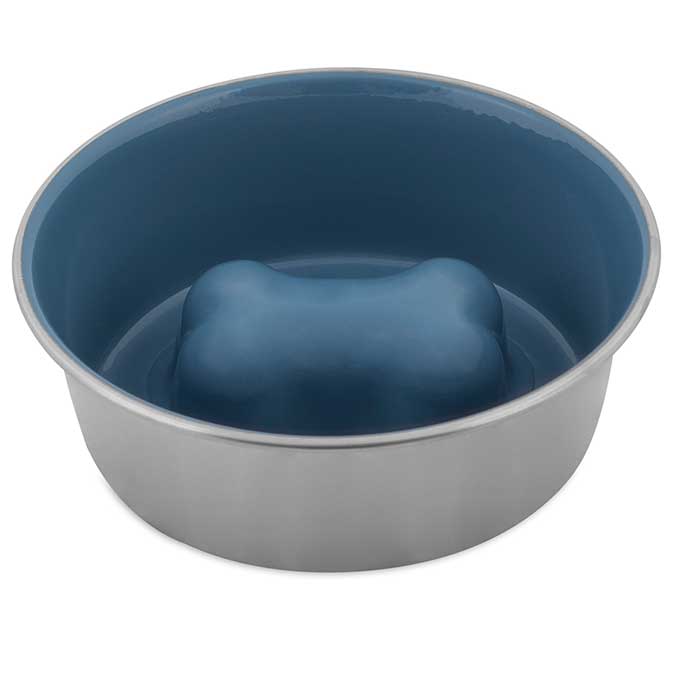
Pay Attention to Your Dog's Diet:
What your dog eats matters! While it may be tempting to slip them scraps of your food from the dinner table, human food can cause excessive gas which may lead to bloating. Certain dog foods may also lead to an increased risk of bloat. For example, dry dog food can cause blockages and is also high in carbohydrates. Ideally, your dog's diet should be low in carbs and high in protein. Before switching your dog's food, though, be sure to first speak with a vet. They will be able to give you the best recommendation based on your dog's medical history and can provide you with pointers to make the transition to a new food as smooth as possible.
Conclusion
Watching your dog sit in pain due to bloating is never fun. While there's not a singular cause for bloating in dogs, most of the time, it's due to their eating habits. So, be sure you follow our tips to prevent bloating in your dog. As always, if you have concerns, call your vet and consult with them.
Additional Resources:
Previous article
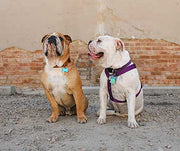
Next article
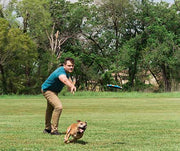
Related posts
View all-
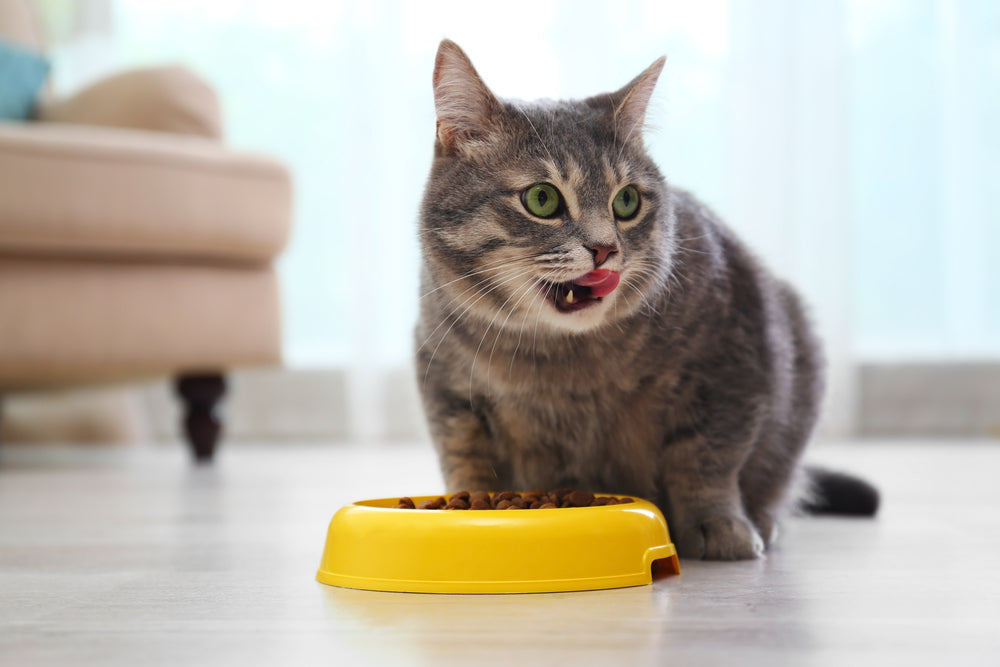
Wet Vs. Dry Cat Food: Which is Better?
As a caring cat owner, you always want the best for your furry friend, especially with their food. You typically have two choices: dry cat food in a bag or canned wet food. Whether you've just brought home a new kitty or are looking to transition to a new food, the decision process can be overwhelming, and understanding the impact of each on your cat's diet is essential. Read Article -
Celebrate National Pet Week: Fun Ideas to Celebrate with Your Pet
National Pet Week is right around the corner, so it's time to plan how you're going to celebrate! While we're sure you celebrate your pet all day every day... Read Article -
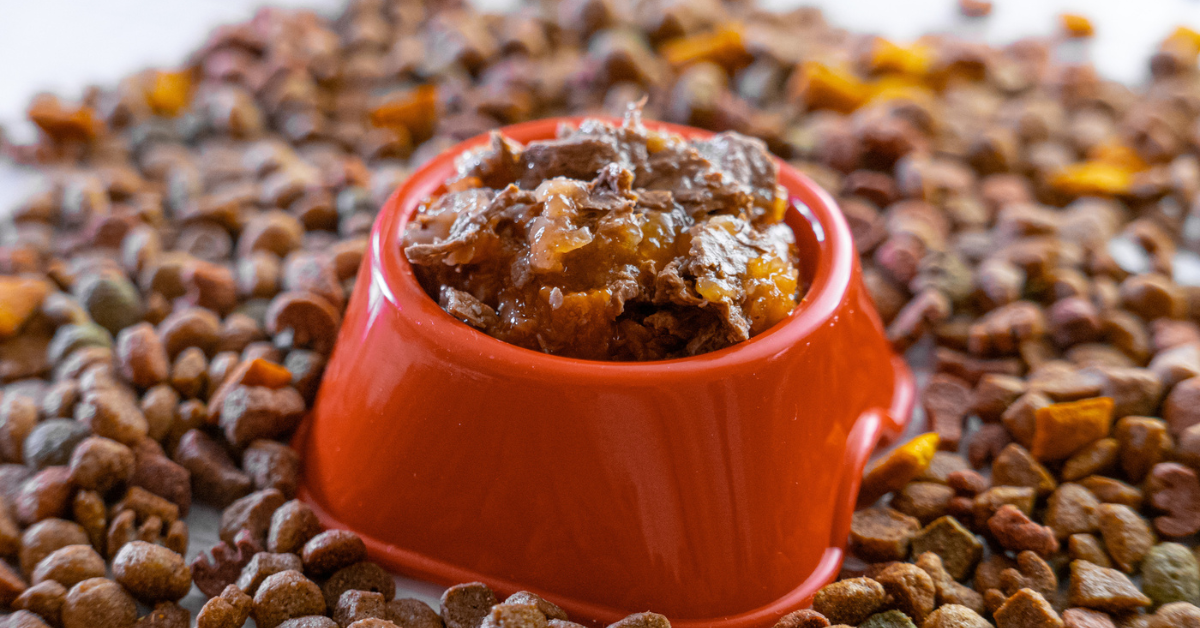
5 Simple Tips to Make Sure Your Cat Drinks Enough Water
Ensuring your cat stays hydrated is important, but it can be challenging since many cats don't drink enough water. Dehydration can lead to kidney disease and other health issues. Fortunately, you can encourage your cat to drink more with a few simple changes. Read Article



